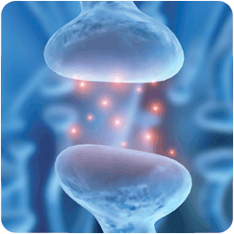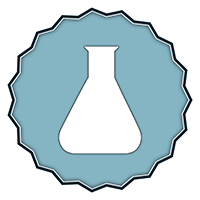The primary Neurotransmitter Of Reward And Pleasure
I’d like to expand on a brief post I did earlier titled: Adrenaline Rush vs. Dopamine Rush. You can find it by clicking here . After years of working with my close friend and college Dr. Ken Blum, It’s become my opinion that Dopamine simply does not receive the attention it deserves for the role it plays in our feeling of happiness and wellbeing.
Dopamine is a neurotransmitter. A neurotransmitter is like an email that gets forwarded around an office from one computer to another. In the email is a message that communicates a directive to the person at the computer. Once the message is read, that person forwards the email to the person next to them and so on until everyone in the office gets the email. Dopamine is the comforting message in the email that gets pass around the office to cheer everyone up.
Now imagine for a moment that you are not receiving the comforting emails. Your days and weeks and months continue to grind on you with no words of encouragement from sources that normally provide them. Like the rest of us you’re going to begin to feel uneasy, out of sorts, down in the dumps or stressed out. In time you will search else were for the comfort you crave.
The scenario I just described to you is precisely what a person feels ? and consequently acts upon ? when they have low dopamine processing. Dr. Blum calls it: Reward Deficiency Syndrome (RDS). It occurs when levels of Dopamine and/or other “feel good” chemicals are low or blocked from the brain’s receptors (not receiving the comforting emails); stress, pain, discomfort and agitation are the result.
Dopamine is the primary neurotransmitter of reward and pleasure ? it’s the chemical in our brain that makes us feel comfortable and at ease. It’s a de-stressor ? without it we’d feel like we have a second skin. Dopamine controls our likes and dislikes; it’s what makes us smile when we see something or someone we like. It puts the spring in our step and helps us maintains a healthy outlook on life.
Reward Deficiency Syndrome is very common in addicts. In fact, in a recent study at G & G Holistic Addiction Treatment Center, Dr. Blum and I found that three out of four people tested had a genetic predisposition to addiction and were suffering from RDS.
However, what was truly ground breaking about this study is the way that people participating in the program responded to two nutraceuticals administered during the test and throughout their treatment. Both affected the reward center in ways we’d only hoped. SynaptaGen X was found to reduce cravings and stress relief (Calmness) while Mental Clarity produced enhanced focus and boosts energy.
The results were dramatic. People were raving about how much better they felt. It was truly an eye opener for myself and for Dr. Blum.


